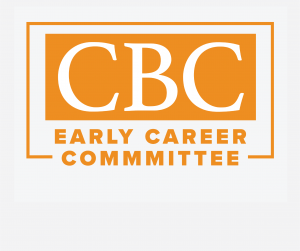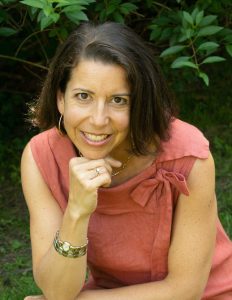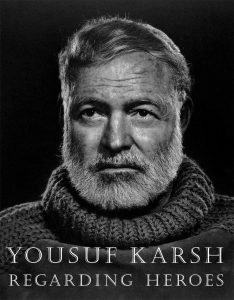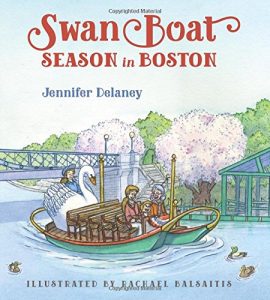Mentor Corner: Jennifer Delaney

Production Director, Charlesbridge

So, the first question is a bit of a two-parter—to start off, what brought you to publishing, and how did you end up working as a production director?
Get comfortable, because my path is a long and winding one! To begin with, I wasn’t much of a book reader. I am now, but in my past, I was more into magazines and I always had a love for children’s books. When I started college, I didn’t know what I was going to major in, so I basically took courses in a variety of subjects hoping something would pique my interest. My strengths were actually in math and science, but I didn’t particularly like those subjects. It wasn’t until I took a creative writing course and a drawing course that everything clicked. But SUNY Binghamton was more known for their science and math curriculums, and I knew that I would pretty quickly exhaust what resources they had in the writing and arts departments. However, by the time I had made that realization, it was already too late to transfer, so I ended up taking a year off.
It was during that gap year in Burlington Vermont that I got a job (one of the many part-time gigs I juggled in order to pay my rent) at The Vermont Times newspaper editing their calendar section. This was my first taste of publishing, and I was hooked. The job included tasks such as research, content development, proofreading, and paste-up design. I loved the variety, which I think is what over the years drove me toward production.
I ended up transferring to Connecticut College, and I designed my own major, since I now knew exactly what I wanted to do. It always amazed me that publishing is generally not a “major” even at liberal arts schools, so I pieced together the courses I thought would serve me well. I treated it more like a graduate program and focused my coursework on writing, editing, and illustration (in the form of photography and ceramics). For my senior project, I created a photo essay called, “‘Til Death Do We Part,” which included interviews and black and white portraits of couples who had been married more than 50 years. It was exhibited at the Cummings Art Center and was the first project I fully conceived, created, and produced.
My first full-time publishing job was with Discover Connecticut Magazine, and this is where I fell in love with producing printed pieces. The entire publishing team was just myself and the editor, Pam Starkey. I ended up handling the design and the production, as well as occasionally generating content, writing, and editing. I was entirely self-taught, and I learned whatever I needed to get the job done. I learned the ins and outs of printing, which I found fascinating. One of the things I also really liked about production is that it incorporated my strong math, business, and general organizational skills. Quoting manufacturing, negotiating pricing, managing schedules, and understanding the technical aspects of printing and binding, all relied on those basic skills.
My next job brought me to the Boston area, where I worked for Bob Adams, Inc., later known as Adams Media. I did production for three career-related magazines, and that was my first experience managing a staff. I loved it! I also had my first experience with a challenging manager, which taught me skills in navigating difficult professional relationships, which I would carry with me through much of my career. When I realized the magazine division was to be sold off to Kaplan, I started networking. A friend of mine had a relative working as a children’s editor at Little, Brown. I got an interview there and landed my DREAM job working as a production coordinator for the Children’s book division.
Children’s books have always been a passion of mine, so producing books for Little, Brown was the pinnacle for me, and I did that for about three years. However, I, unfortunately, was faced once again with a manager that was more concerned about her own reputation than my growth, and repeatedly undermined my ability to do my job. Thankfully, I had a very good relationship with her manager, and he saw promise in me that allowed me to pivot my career at the company. At this time, Little Brown was becoming more under the influence of its parent company, AOL Time Warner, and a position opened up for Reprints Manager of all of Time Warner Trade Publishing, which included Little, Brown Children’s and Adult, Warner Books, and Bulfinch (art and coffee table books). I desperately wanted to get out from under my current management situation and I saw this as the perfect opportunity. However, this job was very demanding and at quite a higher level, and although the senior manager believed in me, even he thought this was a stretch. But, I convinced him to give me a shot. The job had me juggling 400+ reprints at all times, and my first major task was quite the test. Oprah’s Book Club was just starting up—and some of her first picks were Little Brown books. It was all very top-secret, with code words and everything, and if anything leaked there was the danger of Oprah pulling out, leaving us with 700,000 copies we couldn’t sell. It was crazy busy, and super stressful at times, but I absolutely loved it!
In mid-2002, the decision was made to move the Boston offices of Little, Brown to New York to merge with Warner Books (later to be acquired by Hachette). This was just several months after 9/11, and I was about to have my first baby. It was a difficult decision, but I knew I didn’t want to raise kids in New York, and so it was time to leave Little, Brown.
About a year and half later, itching to get back to work, I ended up working part-time for three different small independent publishers. They didn’t start all at the same time. I first spent about five years as part-time Production Manager at David R. Godine, Publisher, and then I added Nicholas Brealy part-time as well, and a couple of years later I also joined Applewood Books as a consultant. At the time, none of them could afford to have a full-time Production Manager, so I pieced them together. Applewood initially hired me as a consultant to institute production processes for them, and once I built those processes, then they asked me to join them to put them into practice. Also, while at Little, Brown, I had started a freelance book production business, which I continued over this time. I had a variety of clients, but my favorites were artists for whom I created high-end catalogs of their work, resulting in beautiful large-scale, hardcover, slip-cased, or custom boxed presentations that were often sold in galleries alongside their art.
During this time, self-publishing was really starting to take off. However, what I realized, from many of my freelance clients, was that there was a gap for those people who wanted professionally published books, but also wanted to maintain the creative control that self-publishing afforded. For many of them, who had other full-time work, learning what they needed to properly self-publish was a full-time job in itself. So, I saw an opportunity to bridge the gap between self-publishing and traditional publishing. To do this I started my own publishing company, JMD Publishing, LLC through which I created a co-venture publishing model. I created two imprints—Curly Q Press (children’s books) and Benna Books (art and coffee table books). In this co-venture publishing model, the authors of the works I acquired would fund the front end of the project, including the editorial, illustration, design, production, and manufacturing costs, and in return, they would earn a 55% royalty on sales, as opposed to the traditional 7-10% royalty. Through my relationship with Applewood Books, I facilitated national distribution, which gave these authors much greater sales reach, through all the major trade sales channels, than they ever could have self-publishing on their own. And, the authors were much more engaged in holding events and selling their books, in order to earn back their initial investment. The authors also owned their own inventory, since they had paid for the manufacturing, so any books they sold through their own networks and channels earned them full list price, with no distribution fees incurred. The creators and I worked very closely as a team, and I did everything I could to preserve their creative vision, while at the same time presenting their life’s work as a beautiful, professionally-published book.
However, with only so many hours in a day (and very little sleep), I realized this all was not sustainable and began to pare back my commitments. I first gave up Godine, and then a couple of years later, when Applewood asked me to come on full-time, I also gave up Nicholas Brealey. Applewood was so interested in the co-venture publishing program I had established, that they ended up purchasing my company, while keeping me on as publisher of those imprints, and also as Production Manager of Applewood’s other imprints. And, for the first time in many years, I found myself with only one job! It was nice to be able to truly apply myself 100% to one company, and one goal.
When the COVID-19 pandemic hit, however, it affected Applewood hard, and I decided it was time to start looking elsewhere. I had mutual friends with Yolanda, Charlesbridge’s Publisher, and had heard that Charlesbridge was in need of a new Production Director, and I got in touch, applied, and here I am now!
Wow, the breadth of your experience and where you’ve worked is so vast—I guess my next question is, what is the greatest difference between all these different companies. How do smaller companies compare to larger ones?
One difference is that the size of the company really affects the roles and responsibilities you can have. At Applewood, for example, I got to do so much more than anyone in the production department could do in a larger company. I handled content creation, editing, managed all the design, and did all the production. I even got to acquire some passion projects of my own. This was also similar to my experience at Godine and Nicholas Brealey.

Two of the projects I did while at Godine that I am most proud of are the Yousuf Karsh photography books Regarding Heroes and Yousuf Karsh: Beyond the Camera. I worked closely with Estrellita Karsh, Yousef Karsh’s widow, and his long-time assistant Jerry Fielder to produce these books. And, after opening my own publishing company they trusted me so much that I went on to publish a third book, Yousuf Karsh and John Garo: The Search for a Master’s Legacy. Presenting Karsh’s extraordinary body of work in beautiful book form, and hearing stories of Yousuf’s sittings with his subjects first-hand from Estrellita, was truly a highlight of my career.
In addition, my time at Applewood afforded me the opportunity to acquire books, and even write my own children’s book, Swan Boat Season in Boston, about the family history behind the Swan Boats in the Boston Common. It was important to me to have that first-hand experience of being an author, since I had spent so many years working with authors but did not know just how it felt to see one’s own words and vision come to life between the covers of a book.

On the flip side, larger companies afford more perks, benefits, and a safety net, where you have a larger team and you are not solely responsible for everything that happens—good or bad. Also, working for very small companies can be challenging when the heads of those companies exercise much more control over the direction and details of all the projects. When an owner’s name is on the masthead, I think there is sometimes a greater inclination for them to take a personal interest in the management details of the company and the products it produces. Hence, there is a greater tendency to micromanage and resist the release of control needed to trust in the decisions and talents of its employees.
Moving to Charlesbridge—I found the opposite to be the case, and it was like a breath of fresh air! I found that management here truly values my experience, skills, and talent, and they trust that I have the company’s best interests at heart. And when you value your staff and trust in their abilities, they will in turn give everything they can back to the company. They will feel invested in the company because they know the company is invested in them, and their growth as employees.
I guess this is a good segue into my next question! What advice would you have for those starting out in publishing, or are early in their careers?
Network. Meet as many people out there as you can, in different areas of the industry, working for different-sized companies. That’s the only way you can expand your breadth of knowledge and find your next opportunity. The publishing industry in Boston is a small community, and people are very connected. Knowing someone is a very good way to land where you want to be, and get more experience—and experience is everything. Also, be willing to explore different areas of the industry. Starting out you may think you want to focus in one area, but when you try something new, it might surprise you. Put yourself out there, take risks, and be open to the possibilities.
And you mentioned briefly that you’ve had to work with some difficult managers, what advice would you have to those in that situation?
I started out not having very thick skin. But confidence and believing in yourself are key. If you know you are working your hardest, and doing the best job you can do to meet the needs of the company and your manager, then anything others might do to try to undermine you or make you feel less worthy, is not your problem—it’s their problem and stems from their own lack of self-esteem. Believing in yourself, and building up a little armor, and thick skin, can go a long way to helping you get through the tough times.
And sometimes, it just takes learning about who you need to be for others, and how they need you to interact with them—learning to be agile and flexible when dealing with different personalities. What parts of yourself can you exhibit in order to give this person what they need? It’s not about being fake. Stay true to yourself and be authentic. But you can make your own life easier, and grow in your career if you can figure out ways to make others’ jobs easier—which will make you a superstar in their eyes. It can just be as simple as knowing someone’s schedule and when they are most approachable or using a tone in your communication that they find appealing. It’s a hard skill to learn, but invaluable once you have it. And, if you find yourself in a job or organization where you don’t feel comfortable, or your growth is inhibited, be open to the possibility that it may be time to search for a new opportunity that is a better fit.
I want to make it clear that I don’t regret a single one of my professional experiences, even the ones that were really challenging. Each one has taught me valuable lessons about myself, and others—and those experiences are what have informed my professional growth and made me who I am today.
And, in all my years mentoring and managing my staff members, I always do my best to really learn who they are and what makes them tick, and to trust, respect, and believe in them. My Dad was a great manager, and he always told me, “You should always be helping the people under you to grow and rise up, so you can rise up as well, and move into new opportunities. If you make yourself indispensable, you will never move out of where you are.” Mentoring has always been one of my favorite parts of my career. I am still close friends with many people who have worked for me in the past. And, I have found it incredibly fulfilling to help people discover their value, to watch them grow as individuals, and to teach them the skills they need to thrive in their careers and accomplish greatness.

